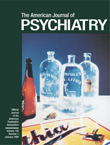There are woefully few readable, thorough, single-author textbooks on drug abuse to which one can refer students and colleagues. There are even fewer reputable drug abuse texts that present reports of these drugs’ subjective effects. After all, how people feel taking drugs has a lot to do with why they use and abuse them.
In addition to the crucially important element of subjective effects, Daniel Perrine’s book complements the more standard presentation of drugs of abuse by filling out their essentially human side; that is, the place of these substances in the larger social and historical context in which they are found. In so doing, his book takes on a more enjoyable and, at times, compelling quality. It is not often one can call a basically pharmacological textbook a “page-turner,” but there were times I genuinely was sorry to see particular chapters end.
Perrine approaches drugs of abuse from the generic perspective of including them within the field of “mind-altering drugs.” By doing so, he gives us the opportunity to learn about legal drugs and naturally occurring plant and mammalian products, with the same comprehensiveness he applies to the discussion of illicit ones.
This approach works. The book has been recognized by the Association of American Publishers, who gave it an honorable mention in their Professional/Scholarly Publishing Division. It also is one of 13 “academic books” declared “outstanding” by the American Library Association in 1997.
An opening chapter sets the stage for understanding neurotransmission, the mechanism by which the brain processes information and transforms it into experience. The two largest chapters are on opioids (legal and illicit) and psychedelics. The shortest chapter covers antipsychotics and antidepressants. Intermediate-length chapters cover depressants (or sedative-hypnotics) such as alcohol, benzodiazepines, and barbiturates; stimulants, including nicotine, caffeine, cocaine, and amphetamines; and dissociative anesthetics (phencyclidine and ketamine) and cannibinoids (including marijuana).
The chapters begin with quotes from mostly literary figures; e.g., De Quincey, Dickens, and Louisa May Alcott, extolling or condemning the properties of the most well-known representatives from each class of drug. Chapters then proceed to describe history of use, isolation of active compounds, pharmacology and receptor-binding properties, derivatives of the primary active compound, and medical and illicit use. Additional headings cover unique aspects of each drug family; for example, the current status of the medical marijuana debate, designer hallucinogens, and treatment of narcotic dependence. There is plenty of fascinating historical and anthropological information, and issues of religion and philosophy are not avoided. Indeed, in one of his footnotes, Perrine refers to some of his own experiences training as a Jesuit novice.
The writing is entertaining, at times quite funny (I had to stifle laughter a few times while reading the book on my weekly ferry crossing to work), and massively referenced. References are varied and include newspaper articles, historical/archival material, translated works (Perrine knows his German and Latin), as well as a broad array of pharmacology, medicinal chemistry, and psychiatry journals. The index is complete and easy to use.
There were a few minor changes I would like to see in a revised edition of this book. I thought the chapter on psychedelics was a little long, although this might be from my own overfamiliarity with the topic. The four appendixes, while on their own quite useful and thorough, are too specialized for most nonchemists. Although subjective reports of drug effects are sprinkled through every chapter, not all drugs have subjective reports associated with them; e.g., the antipsychotics. Finally, it was somewhat distracting to find a typographical error every 15–20 pages.
In summary, this is one of the best books on mind-altering drugs of abuse, and medical use, I have come across. It is an outstanding choice for an advanced undergraduate, or lower-level graduate, class on human psychopharmacology or physiological psychology. It would also be valuable reading for a course on drug policy or the sociology of drugs. Medical, nursing, pharmacy, and pharmacology students would be well served by reading it and putting it in a prominent place on their bookshelves. I look forward to future editions.

